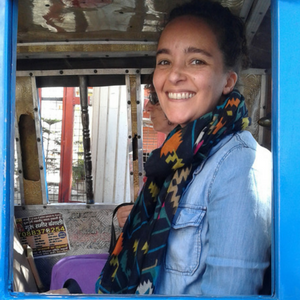In his first—and much talked-about—encyclical that goes beyond a Catholic audience, Pope Francis calls on humans to cherish the Earth, “our common home”:
The urgent challenge to protect our common home includes a concern to bring the whole human family together to seek a sustainable and integral development, for we know that things can change. [from point 13]
Francis also addresses stumbling blocks to overcome so that we can tap wisdom and create change. For instance, he writes about the numbing aspects of media:
47. Furthermore, when media and the digital world become omnipresent, their influence can stop people from learning how to live wisely, to think deeply and to love generously. In this context, the great sages of the past run the risk of going unheard amid the noise and distractions of an information overload. Efforts need to be made to help these media become sources of new cultural progress for humanity and not a threat to our deepest riches. True wisdom, as the fruit of self-examination, dialogue and generous encounter between persons, is not acquired by a mere accumulation of data which eventually leads to overload and confusion, a sort of mental pollution. Real relationships with others, with all the challenges they entail, now tend to be replaced by a type of internet communication which enables us to choose or eliminate relationships at whim, thus giving rise to a new type of contrived emotion which has more to do with devices and displays than with other people and with nature. Today’s media do enable us to communicate and to share our knowledge and affections. Yet at times they also shield us from direct contact with the pain, the fears and the joys of others and the complexity of their personal experiences. For this reason, we should be concerned that, alongside the exciting possibilities offered by these media, a deep and melancholic dissatisfaction with interpersonal relations, or a harmful sense of isolation, can also arise.
Pope Francis’ words underscore what Metta Center has long said: our person power, the backbone of lasting collective power, can be strengthened by reducing our media consumption (especially that of the corporate media).
The less time we devote to consuming media (and/or staring at our screens), the more time we have for true healing, connectedness, and cooperation.
It’s of course important that we stay informed, and sometimes only the corporate media provide the news we need—they’ve got the budgets and resources to carry out investigations, to legally challenge governmental attempts at secrecy. And so the corporate media tend to steer which issues are discussed in indie media, even.
Whichever media we turn to, staying informed doesn’t mean consuming news or meandering social media for hours on end. Taking in positive media all day would still equal numbing out to media and/or screens.
With that said, improving the media landscape is a major component of creating beneficial changes. Peace Paradigm Radio and Emergence magazine are sources of new cultural progress, as are many of the resources listed on our Journalists Toolkit page.
Pope Francis’ 184-page encyclical is media worth spending quality time with. Download the PDF of On Care for Our Common Home.









